Additional Exercises for Diagramming Sentences: A Playful Way to Analyze Everyday Language Amy Lynn Hess Gypsy Daughter Tucker, Georgia  Copyright 2014 by Amy Lynn Hess All rights reserved. With the exception of educational, educational institutional or personal use, no part of this publication may be reproduced or transmitted in any form or by any means, electronic or mechanical, including photocopy, recording or any information storage and retrieval system, without permission in writing from the author. In honor Irene and Onley Hess Rosetta Dickey Kathy Braden
Copyright 2014 by Amy Lynn Hess All rights reserved. With the exception of educational, educational institutional or personal use, no part of this publication may be reproduced or transmitted in any form or by any means, electronic or mechanical, including photocopy, recording or any information storage and retrieval system, without permission in writing from the author. In honor Irene and Onley Hess Rosetta Dickey Kathy Braden
Table of Contents
Introduction to Additional Exercises
Sometimes teachers and students need just a few more examples or just a few more exercises in order to really teach or learn a particular concept. To have additional examples and exercises on hand is, well, handy . So, this handy supplemental text offers teachers, parents, and students just that; additional exercises and examples to help students better understand each of the concepts discussed in the main text, chapter by chapter. Whether you are a teacher, student, or parent, I hope you find the additional examples and exercises useful for teaching and study.
Complete lessons about the parts of speech, parts of a sentence, and how to diagram each in context are included in my complete textbook, Diagramming Sentences: A Playful Way to Analyze to Everyday Language . -Amy Lynn Hess
Chapter One - Simple Subjects and Verbs
Parts of Speech - Nouns, Pronouns, Verbs
| Parts of Speech | Examples |
| Nouns | The four sisters baked a cake . Jessica went to South Africa for a reunion . Stress is the silent killer. |
| Pronouns | I take that bus to school . She went home for it . That 's the greatest power in the world. |
| Verbs | The four sisters baked a cake. Jessica went to South Africa for a reunion. Stress is the silent killer. |
Example Verb Tense and Aspect Chart To Write

Auxiliary Verbs
| "To Be" Verbs | "To Have" Verbs | "To Do" Verbs | Modal Verbs |
| Am | Have | Do | Shall |
| Is | Has | Does | Will |
| Are | Had | Did | Should |
| Was | Would |
| Were | May |
| Be | Might |
| Being | Must |
| Been | Can |
| Could |
Parts of a Sentence
Subjects Finding the Subject of a Sentence
| Sentences | Questions | Subjects |
| Jean loves pirogues. |
| Typists type. | Who types? | Typists type. |
| Juanita cooks. | Who cooks? | Juanita cooks. |
| Dust settles. | What settles? | Dust settles. |
Predicates Finding an Action Verb
| Sentences | Questions | Verbs |
| Cats meow. | Cats do what ? | Cats meow . |
| Children played. | They did what ? | They played. |
| Caterpillars will be crawling. | What will caterpillars be doing ? | They will be crawling. |
| Flowers had grown. | The flowers had done what ? | Had grown . |
Example Diagram Simple Subjects and Predicates

Have a Try Simple Subjects and Verbs
Try diagramming the following sentences on your own. Example Diagram Simple Subjects and Predicates

Have a Try Simple Subjects and Verbs
Try diagramming the following sentences on your own.
The answers will follow. 1. Cats meow. 2. Typists type. 3.
Dust settles. 4. Flowers had grown. 5. They will be crawling. 6.
Students did write. 7. He shall write. 8. They have written. 9.
I will be writing. 10. You should write.

Chapter Two - Compound Subjects and Compound Verbs
Parts of Speech - Conjunctions
| Parts of Speech | Examples |
| Conjunctions | Jason will eat a hamburger or a hot dog. The dog has had a bath, but she still smells terrible. The bathtub is clogged because my mom gave the dog a bath. Jason will have either a hot dog or a hamburger. |
Coordinating Conjunctions Lex will make his bed, for it is written on the list of chores. Ian will not mow the lawn, nor will he trim the hedges. Elizabeth will clean the gutters, but she will take a nap on the couch or in the hammock, first. Joe has planted his entire garden, yet he is not tired. Becky cleaned the kitchen, bathroom and den, so she is tired.
Correlative Conjunctions Either/or: Irene will either crochet a blanket, or she will knit a sweater. Neither/nor: Neither Norbert nor Ted opened the gate. As/as: As hungry as he was, he did not eat until past midnight. Such/that: Such is Kailus skill at Tai Chi, that he teaches the master level class. Both/and: Tracy took both the blanket and the pillow to the Laundromat . Subordinating Conjunctions (Explained in Chapter Eleven) As though she was dreaming, Lynn wandered to the mailbox.
While the others tore down the wall, Phillip placed the pieces in the wheelbarrow. Rosalita thought of her mother whenever she pruned her rose bushes. Francesca built a railing for the stairs lest anyone should fall. Now that Terrance has graduated, he will move to Texas to find a job.
Parts of a Sentence
Compound Subjects Matthew and Michael play their guitars. Matthew or Michael will play the guitar.
Either Matthew or Michael is playing. Compound Verbs Matthew picks and strums. Michael picks or strums. Ana neither picks nor strums the guitar.
Have a Try Compound Subjects and Compound Verbs
Try diagramming the following sentences on your own. 1. 1.
Pick and strum. 2. Sheila and I crochet. 3. Ana and Amy are going to sing. 4.
Jessie and Will will strum and sing. 5. Betty and Johanna will have been cleaning. 6. You and Eli should sing. 7.
Angela and Dennis are going to eat. 8. Irene will either crochet or knit. 9. This spun yet twisted. 10.
These and those both spun and twisted.

Chapter Three Modifiers
Parts of Speech - Adjectives, Adverbs, Possessive Nouns, Possessive Pronouns, and Demonstrative Pronouns
| Parts of Speech | Examples |
| Adjectives | Dan loves hot and spicy foods. Erin and Dan have two girls. Brenda has a big house, but it is not the biggest house on the block. |
| Adverbs | Marsha responded nicely. Yesterday , Theatis called. |

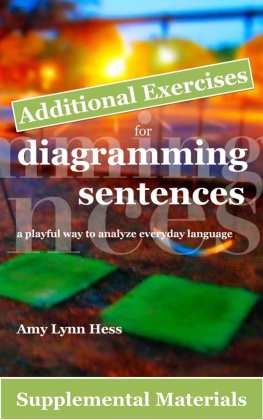
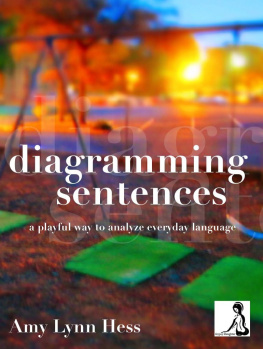
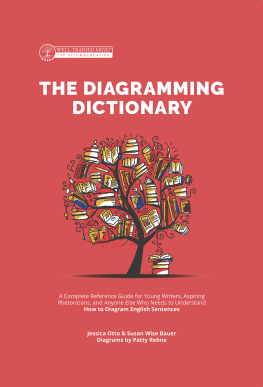

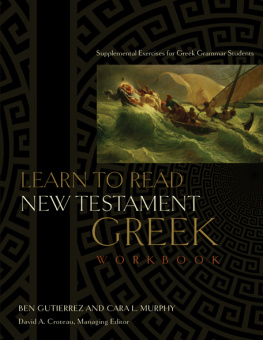

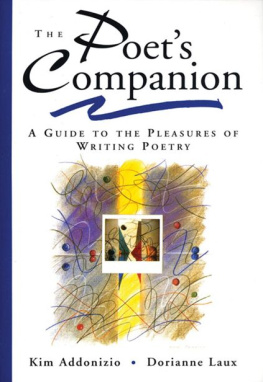
 Copyright 2014 by Amy Lynn Hess All rights reserved. With the exception of educational, educational institutional or personal use, no part of this publication may be reproduced or transmitted in any form or by any means, electronic or mechanical, including photocopy, recording or any information storage and retrieval system, without permission in writing from the author. In honor Irene and Onley Hess Rosetta Dickey Kathy Braden
Copyright 2014 by Amy Lynn Hess All rights reserved. With the exception of educational, educational institutional or personal use, no part of this publication may be reproduced or transmitted in any form or by any means, electronic or mechanical, including photocopy, recording or any information storage and retrieval system, without permission in writing from the author. In honor Irene and Onley Hess Rosetta Dickey Kathy Braden Auxiliary Verbs
Auxiliary Verbs 

